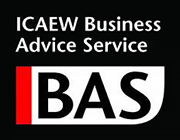Updated: 12th February 2020
The Roles of Shareholders and Stakeholders
Shareholders and stakeholders both play fundamental roles in a limited company, but their aims and interests are very different. People who hold shares in a company are stakeholders by definition, and have a vested interest in the business’ prosperity.
Stakeholders, on the other hand, don’t necessarily have to be shareholders, and whilst they also have a personal interest in the company’s success, this interest is typically taken over longer-term.
What is a shareholder?
Shareholders own equity in a company through the purchase of shares. They aren’t directly involved in running the business, but may have rights depending on the class of share purchased.
The company’s articles of association lay out the rules of how the company will be run, including any rights held by shareholders. A shareholder’s perspective differs from that of a stakeholder in that their interests are related to profitability, growth, and dividend distribution.
Shareholders who have voting rights may sanction certain matters at an Annual General Meeting (AGM), which public companies must hold every six months. These include directors’ remuneration and dividend distribution.
So what is a stakeholder, and how do the two roles differ?
What is a stakeholder?
Companies have internal and external stakeholders. The interests of both groups are longer-term when compared with shareholders, whose connection to a business may be short-lived depending on when they decide to cash in their shares.
Internal stakeholders have a more direct relationship with the company, typically being members of staff and managers. External stakeholders usually include creditors and suppliers, but the term can also incorporate larger groups such as trade unions, government regulators, and community groups. As we mentioned earlier, shareholders are also stakeholders in a company.





